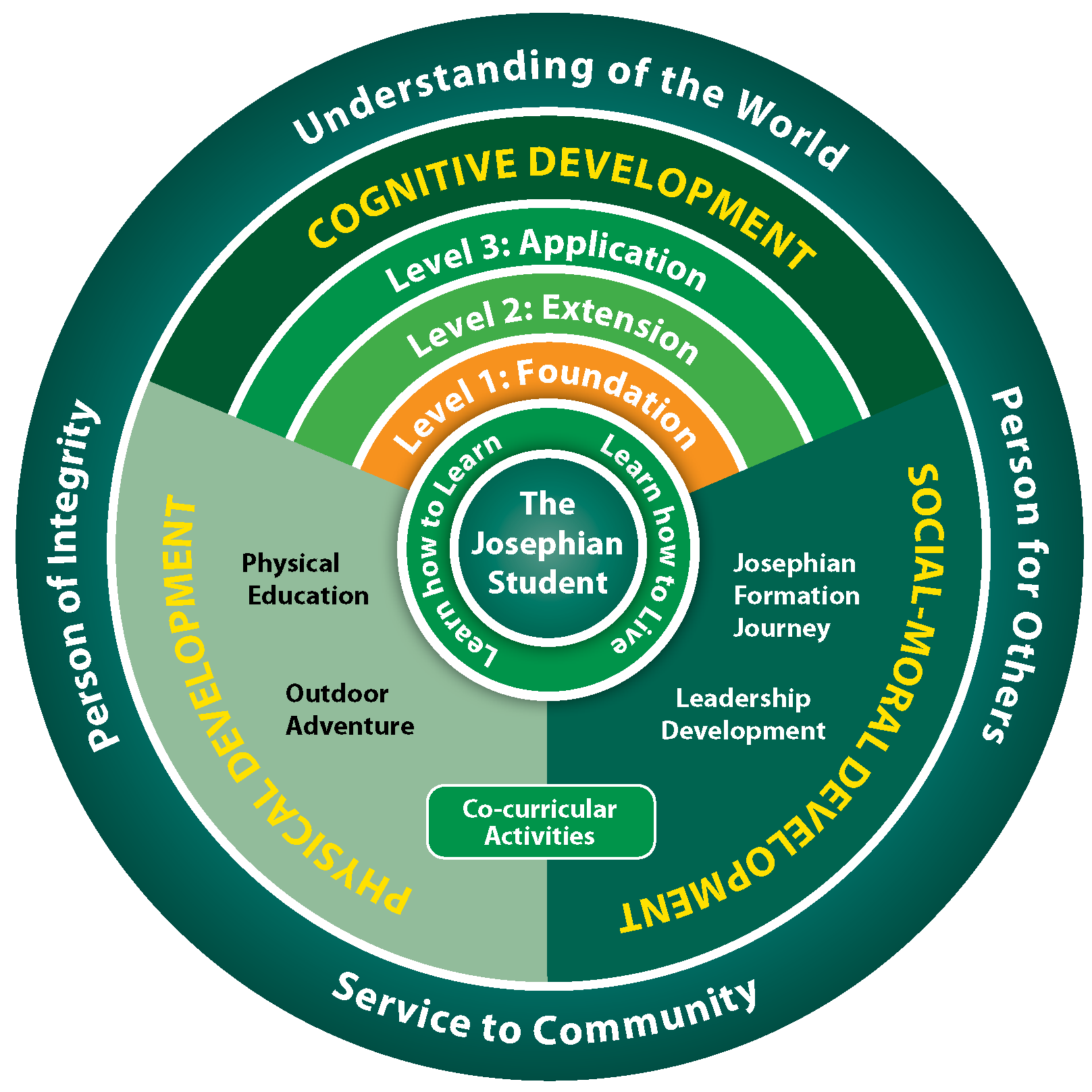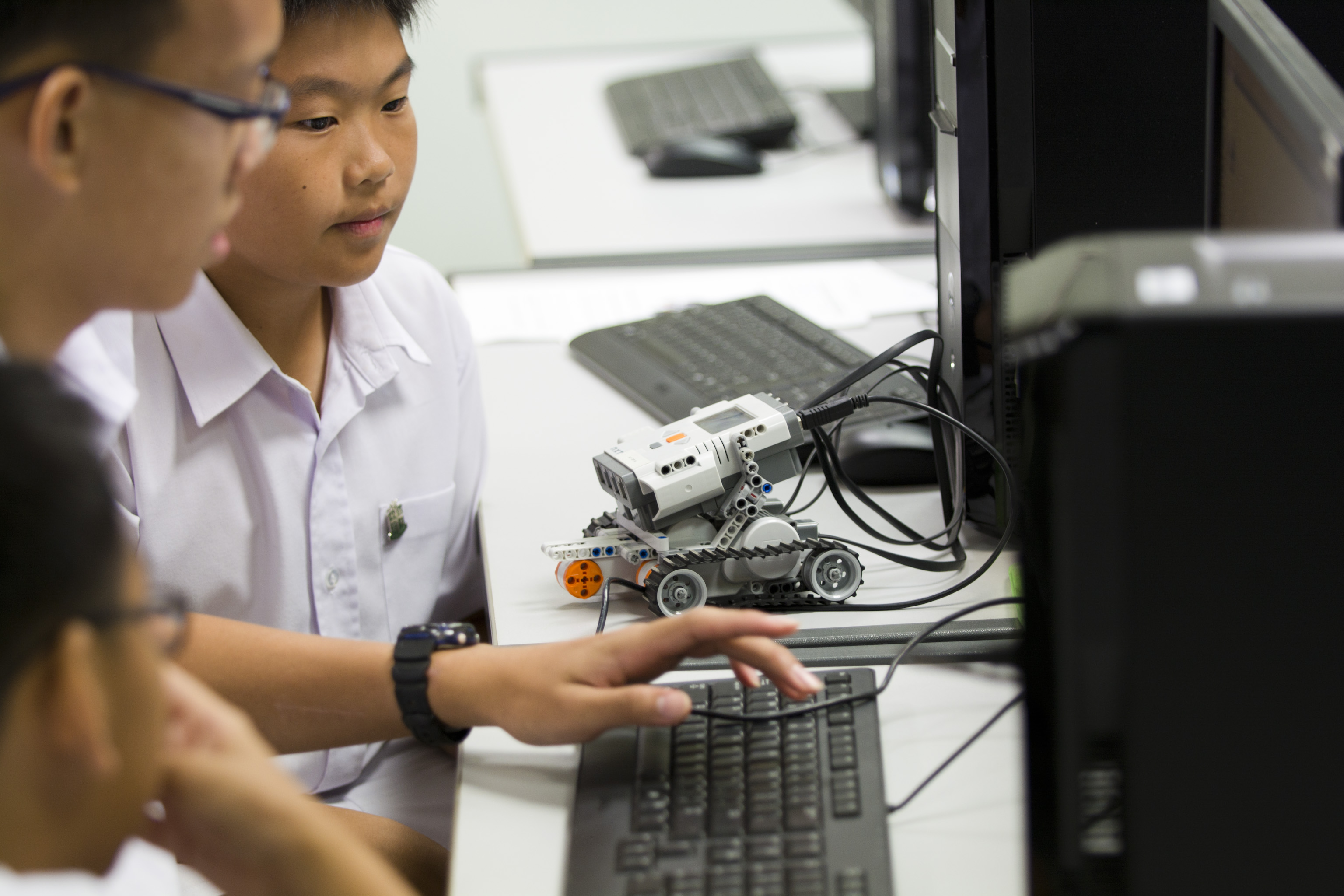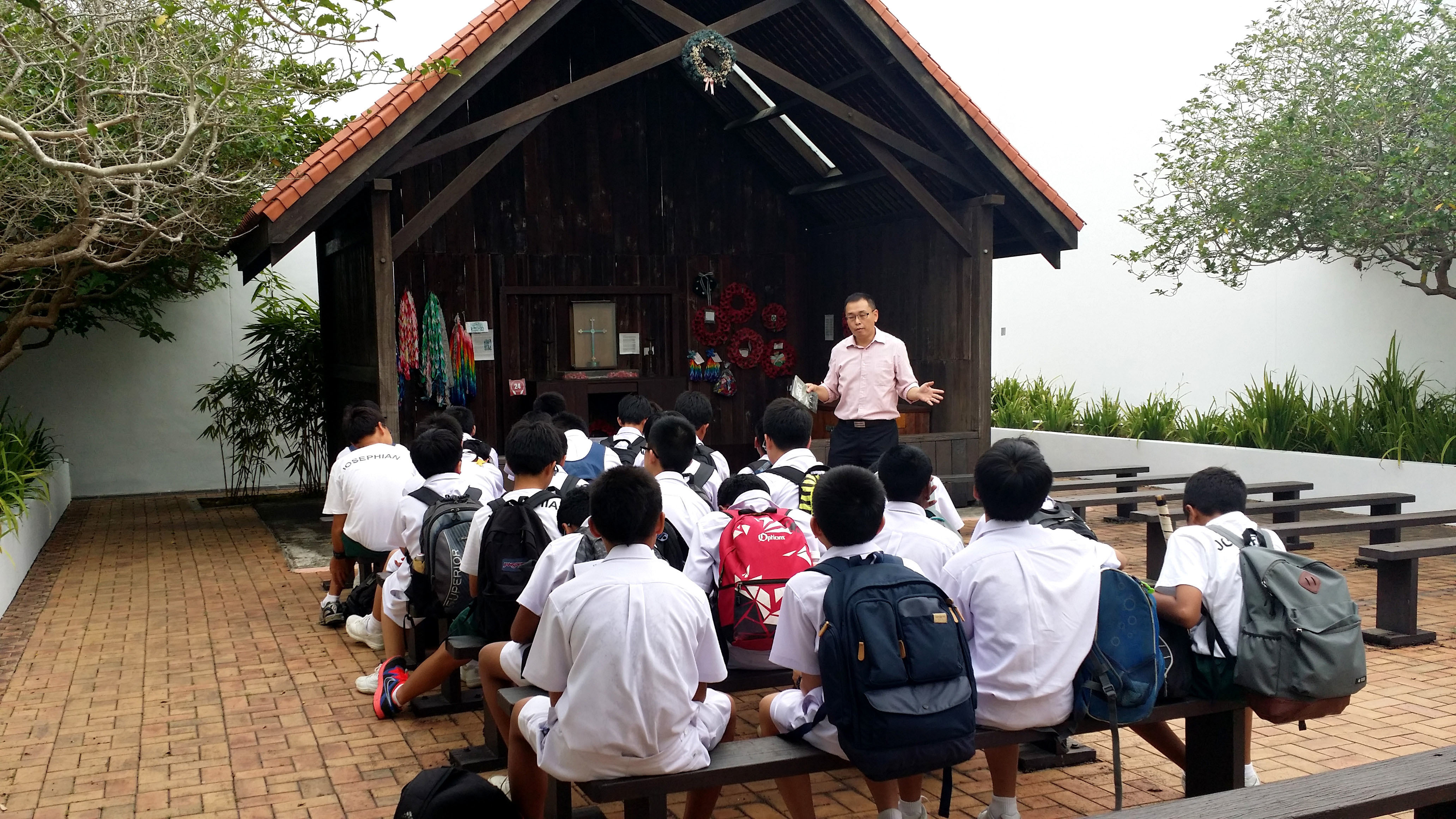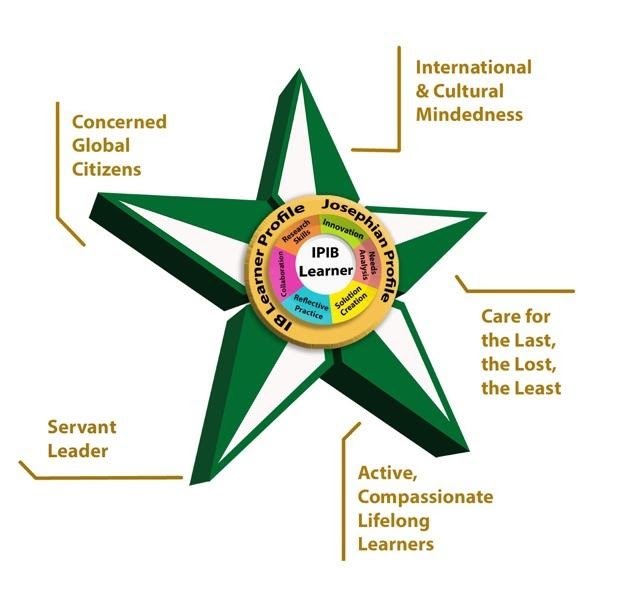Overview Of SJI Education
SJI offers its secondary school boys a dual track education comprising an Integrated Programme (IP) and the Secondary Education Certificate (SEC) Programme. The IP track is a 6-year programme comprising of 4 years of secondary education integrated with 2 years of the International Baccalaureate Diploma Programme (IBDP) in Years 5 and 6. The 2-year pre-university IBDP admits boys and girls (co-education). The SEC track is a 4-year programme leading to the Secondary Education Certificate (SEC) examinations at the end of Year 4. Based on their SEC examination results, they can apply to continue the IBDP at SJI, or pursue courses at other junior colleges or polytechnics.
An SJI education aims to educate the whole person. At SJI, we focus on nurturing our students to learn how to learn and to learn how to live, so that they can be empowered to grow into Men and Women of Integrity and Men and Women for Others. We operate based on the values of Faith as our foundation, Service as our way, and Community as our support.
Hence, our broad-based academic curriculum integrated with a comprehensive student development curriculum focus on providing a balanced and holistic education with a strong emphasis on character formation and leadership development. We develop each student according to his/her talent and interest, to prepare them for the real world beyond school. We not only want our students to acquire the necessary knowledge, skills and dispositions that will prepare them well for post-secondary education and the future but also to be able to live a meaningful life driven by passion in the service for others.
SJI's Dual Track Education
Respectful of each boy’s ability and development pace, with transfer possible between programmes at the end of Year 2:
_2023-dualtrack.png)
Click on the links below to find out more about our academic programmes:
| Secondary Education Certificate Programme (SEC) (Year 1 - 4) |
Integrated Programme (IP) (Year 1 - 6) |
International Baccalaureate Diploma Programme (Year 5 - 6) |
Levels of Learning at SJI (Year 1 - 4)

The Levels of Learning is the core framework behind the Cognitive Development component of an SJI education. It describes the Josephian student as moving from foundational subject-based knowledge, to extending learning by adopting an inquiry-mindset motivated by interest and passion, and eventually making use of this knowledge in service to the community in authentic settings.
While the Levels of Learning are designed with the IBDP in mind, all SJI students at the Lower Secondary years will have a chance to participate in all 3 Levels of Learning.
- Level 1 Learning: Academic Foundation
- Level 2 Learning: Academic Extension
- Level 3 Learning: Academic Application
Level 1 Learning: Academic Foundation
SJI offers a broad-based curriculum, comprising languages, humanities, sciences and mathematics, which provides a strong foundation for exploring interests and talents, and for further studies in the IBDP for the boys on the IP track, and flexibility for IBDP or ‘A’ Level for the boys in the SEC Programme. At upper secondary level, most students offer an 8 subject combination.
_2023-ipsec.png)
-
Josephian Arts Programme (JAP Visual Arts)
JAP Visual Arts is a four-year academic programme designed for Josephians in Years 1 – 4 to encourage and enable them to develop specific skills to create art, make purposeful connections between investigation and practice, communicate and express artistic thoughts, respond to and reflect on art to be socially aware and relevant. JAP is compulsory for DSA Visual Arts students.
Level 2 Learning: Academic Extension (Years 1 & 2 Programmes)
Building Understanding of the World Through Inquiry & Nurturing a Sense of Wonder and Curiosity
-
Academic Discovery Modules (ADM)
 To inquire about the world or the self through a process guided by teachers. This process will get students to adopt lenses of the discipline in order to answer essential questions. As an example, this will give them opportunities to think and act like a scientist or historian.
To inquire about the world or the self through a process guided by teachers. This process will get students to adopt lenses of the discipline in order to answer essential questions. As an example, this will give them opportunities to think and act like a scientist or historian.
-
Independent Study Modules (ISM)
 To inquire about a topic of great interest through an independent research. Students get to pose any inquiry questions (E.g. What kind of lives do celebrities lead? Why do frogs croak after rain?) which may arise in their daily lives, and go through an independent research process to answer these questions. They will then do an oral presentation in order to communicate their learning.
To inquire about a topic of great interest through an independent research. Students get to pose any inquiry questions (E.g. What kind of lives do celebrities lead? Why do frogs croak after rain?) which may arise in their daily lives, and go through an independent research process to answer these questions. They will then do an oral presentation in order to communicate their learning.
-
Josephian Innomakers Programme
The Josephian Innomakers Programme aims to provide students with the opportunities and platforms to learn through play, and through this playful learning, learn to be agents of change by innovating in service to the community. Creative Problem Solving framework and Design Thinking will be integrated into the curriculum to encourage students to Think, Make, Do and Share. Students will be introduced to the 21st-century workplace as they learn skills like coding, building robots, 3D printing, video-making and cardboard modelling. Skills and dispositions aligned with the IBDP Approaches to Learning (AtL) will be developed as the learning experiences challenge students to communicate, collaborate, self-manage, research, and think creatively as well as critically.
-
Junior Researcher Programme (JRP)
The Junior Researcher Programme focuses on educating and equipping students with foundational research skills, which will be extended as they progress on to Year 3 and 4 IP and SEC with Signum Fidei and Curriculum+ respectively. It is designed to encourage interdisciplinary learning and discovery by infusing research skills as a pedagogical tool in Level 1 and Level 2 learning. The programme also seeks to talent scout and develop IP and SEC students, with aptitude in research work, to represent the school and participate in competitions and various research programme at the national level.
Level 3 Learning: Academic Application (Years 3 & 4 Programmes)
Systematic Inquiry to Address Issues or Problems in Service to Community
-
Curriculum+ (SEC 3 & 4)
In Curriculum+, we facilitate our students’ discovery of their strengths and build enduring skills through purposeful design modules. Year 3 students acquire values and dispositions of collaboration, self-directedness, risk-taking and service orientation through Project Work and the Electives. As part of the Education and Career Guidance module, the Year 4 students are exposed to traditional and non-traditional occupations through direct interactions with practitioners.

-
Signum Fidei Programme (IP 3 & 4)

Signum Fidei Programme (SF) aims to achieve the goal of allowing Josephians to integrate and transform their learning into practical solutions. Through the design thinking processes, the students will innovate beyond their existing paradigm and offer a fresh perspective into real-world issues which they are passionate about.
In Year 3, students will learn the theoretical underpinning to design thinking, needs analysis, research methodology, communication, presentation, interdisciplinary approaches etc. This knowledge will be useful when students work in groups to investigate the needs of a local organisation assigned to them and will propose and present meaningful solutions/prototypes to the organisation. If possible, students will be invited to actualise their proposal with the organisation.
From the previous experience and learning, the students will once again be exposed to the needs of the community but will use the lens of innovation and enterprise to apply their learning. There are 2 anchor programmes at Year 4: Innovathon (competition for innovation and creativity) and SFgives (students will use their innovation and enterprising spirit to contribute to a charity).
Student Development Programmes
The comprehensive student development curriculum prepares both our IP and SEC boys well for the real world beyond school by helping them to learn how to live. This curriculum comprises various programmes which are aimed to develop the necessary life skills such as moral compass, effective communication, personal effectiveness, working with others and understanding the community. These programmes include:

